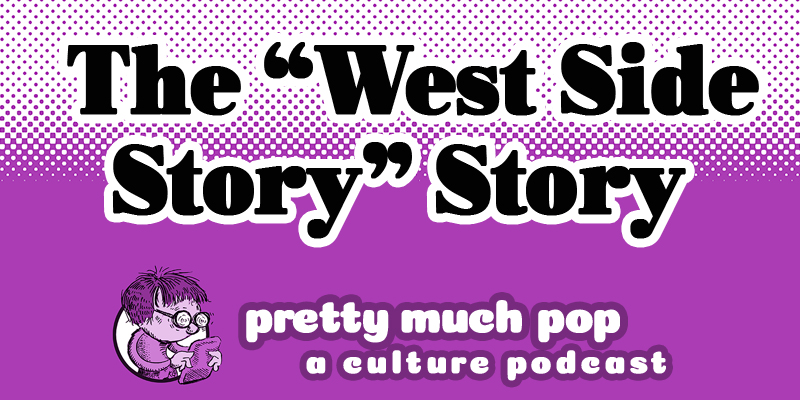
Did it make sense for Steven Spielberg to remake one of our nation’s most beloved musicals (with music by Bernstein and Sondheim!), attempting to fix the parts that did not age well politically? Is the new version a modern classic or a doomed Frankenstein?
Your host Mark Linsenmayer is joined by Broadway scholar, theater critic, and actor Ron Fassler; Remakes, Reboots, and Revivals co-host Nicole Pometti; and Broadway actor and long-time PEL friend BIll Youmans.
Ron regales us with facts about the original 1957 musical and the 1961 acclaimed film version. We consider the choices for the new film in filming, choreography, casting, and how the script was completely rewritten by playwright Tony Kushner with lots of consultation with the Puerto Rican community to ensure that the representational mistakes of the older versions were corrected. Also, why is this not doing so well at the box office, and what does this mean?
We also touch on other recent movie musicals including In the Heights and Cats, and think about in general how genres and tropes popular in the past are faring today.
Some of the articles we considered in preparing for this episode included:
- “Down With West Side Story” by Odie Henderson
- “What’s New in the New West Side Story?” by Ed Morales
- “How ‘West Side Story’s’ First-Class Music Team Preserved the Authenticity of Leonard Bernstein’s Score” by Jon Burlingame
- “A Puerto Rican filmmaker on ‘West Side Story’’” by Rachel Hatzipanagos (interviewing Frances Negrón-Muntaner)
This episode includes bonus discussion you can access by supporting the podcast at patreon.com/prettymuchpop or by choosing a paid subscription through Apple Podcasts. This podcast is part of the Partially Examined Life podcast network.
Pretty Much Pop: A Culture Podcast is the first podcast curated by Open Culture. Browse all Pretty Much Pop posts.
The “West Side Story” Story — Pretty Much Pop: A Culture Podcast #114 is a post from: Open Culture. Follow us on Facebook and Twitter, or get our Daily Email. And don't miss our big collections of Free Online Courses, Free Online Movies, Free eBooks, Free Audio Books, Free Foreign Language Lessons, and MOOCs.
from Open Culture https://ift.tt/3FswQRG
via Ilumina
Comments
Post a Comment